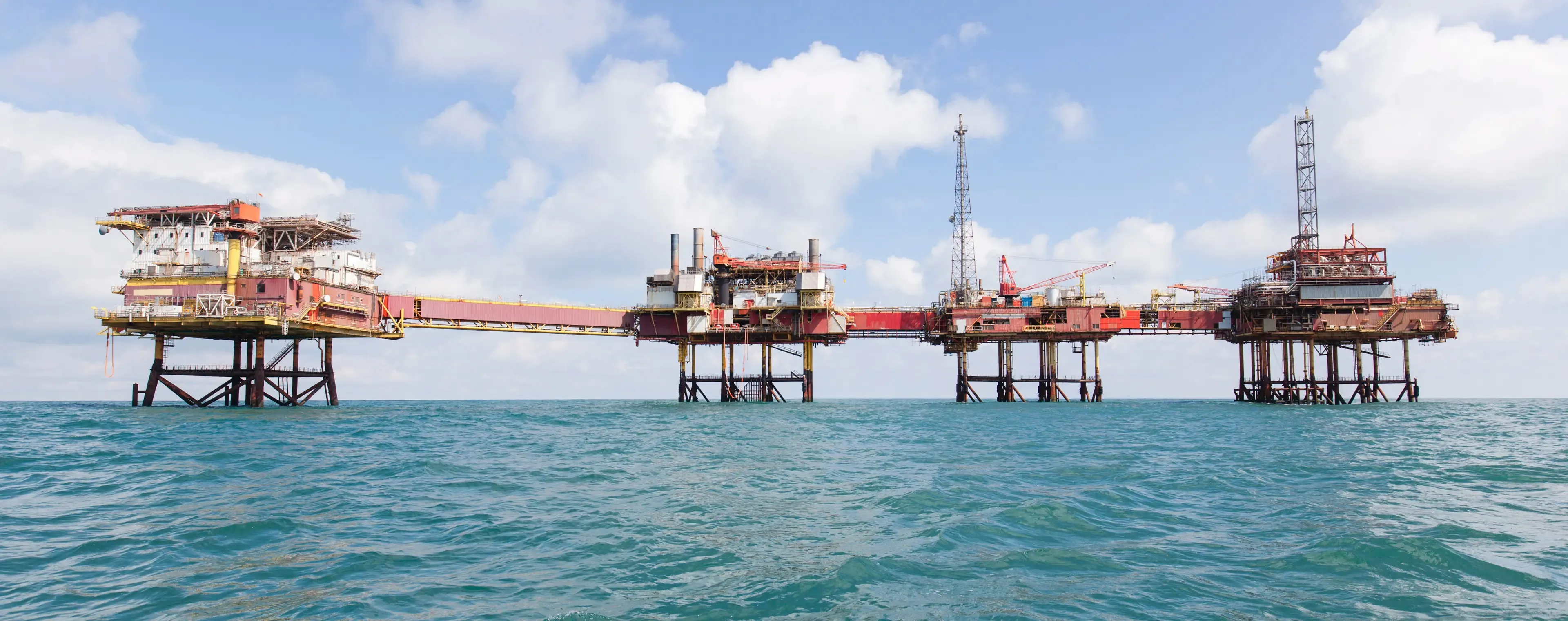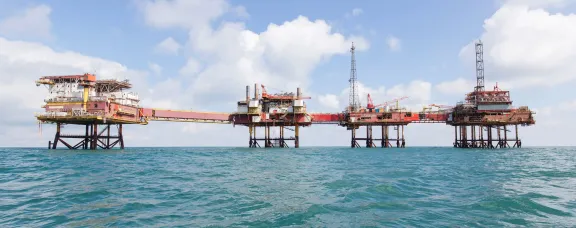Working on an oil rig is high risk given the type of work involved, the unusual working environment and varying weather conditions. Injuries can occur in operations such as manual handling or lifting, testing, rope access, helideck and decommissioning, and in incidents such as explosions or falls. In addition, the extracted oil or gas can be very hazardous. We cover some of these accident types in more detail below.
Your employer has a duty to take reasonable care for your health and safety while you are working offshore, and this includes when you travel to and from work by sea or air, and protecting you from the risks of contracting COVID. So if you are injured when working offshore and your employer has not taken reasonable care, they may be liable. Our specialist Personal Injury Solicitors can help you claim the compensation you are entitled to.
Offshore accident types
Accidents offshore can be down to a range of issues, but there are some commonly occurring types of accidents.
Mistakes by other workers
Often tasks offshore, given the nature of equipment used, will be carried out by a number of employees. Your colleague may make a mistake which leads to your injury. Your employer is responsible for the acts and/or failures of their employees, so if you are injured as a result of their actions you may have grounds for a compensation claim.
Unsafe systems
Working offshore is inherently dangerous and generally speaking the companies that employ workers on oil rigs take safety very seriously as a result. However, sometimes unsafe systems place the health and safety of those working at risk.
There must be a safe system in place to ensure employees are not injured and it must also be enforced. Your employer has a duty to assess the risks of any task they want you to do and devise and implement a safe method for you to carry out that task. If this is not done and the lack of a safe system leads to an injury, you could be entitled to claim compensation for your injury.
Faulty work equipment
There is a wide range of work equipment used offshore, from bespoke items such as rotary tables and mud buckets to common items such as screwdrivers, drills and saws. Anything that is used for work is covered by the Provision and Use of Work Equipment Regulations 1998 (PUWER). The equipment is ‘used’ if the activity involves starting, stopping, programming, setting, transporting, repairing, modifying, maintaining, servicing or cleaning.
Your employer has to provide you with safe work equipment. They must inspect and maintain that equipment and ensure you are trained to use it. You should have specific dangers and risks when using equipment, such as machinery, pointed out to you during your training and your employer must provide you with suitable protective equipment such as goggles and gloves. They must also remove faulty equipment immediately for repair.
If you are injured by faulty work equipment then you may be entitled to claim compensation for your injury.
Lack of training on industrial equipment
Oil rigs and other offshore platforms have a lot of equipment that can be dangerous if not used correctly. The nature of drilling for oil is that the equipment is very powerful, whether that be pumps, drills or power units. Serious injuries can occur if employees are struck by a moving part of the machine, caught or crushed by the machine.
Every employer has a duty to ensure that the operator has received sufficient training as well as keeping the equipment in good working order. That can mean that if you sustain an injury while you are operating a machine you can still claim compensation if the accident could have been avoided if better training had been provided.
Workplace falls
Even in an offshore working environment, your employer has a duty to prevent the risk of slips and trips. They should ensure that every floor and traffic route in your workplace is suitably constructed and free from obstructions and substances which may cause you to slip, trip or fall.
On an oil rig or offshore platform, an employer’s obligations can include, for example, ensuring that non-slip matting is installed and replaced when becoming worn. They should also have a system in place to ensure items such as oil-based mud are cleaned up.
Your employer is also responsible for the acts and/or failures of their employees. This means that if, for instance, your colleague left an object on the floor and you tripped over it injuring yourself, you may be eligible to make a personal injury compensation claim against your employer.
Poor condition of workplace
Oil rigs are not easy places to work. They are challenging environments and government regulations are there to ensure that there is suitable and sufficient lighting and that the workplace is properly ventilated to reduce the risk of oil rig accidents. If you are injured during your offshore work due to the poor condition of your working environment, you could have grounds for a compensation claim against your employer.
Manual handling
Manual handling tasks are a likely requirement of the job when working offshore. Manual handling is any task that involves moving a load by carrying, pushing, pulling or lifting. If you do such a task incorrectly, with the wrong equipment or with too heavy a load, it can cause you injury, and can make any existing medical conditions you have worse.
If you are undertaking manual handling tasks offshore then you have to have had sufficient training. Your employer also has a duty to review the working practices and remove the need for manual handling tasks where reasonably practicable. All unavoidable manual handling tasks need to be risk assessed. The risk assessment should take into consideration your particular abilities including whether you have any existing or previous injuries.
Your employer ought to take reasonable steps to reduce the risk of injury to you while you are carrying out manual handling tasks. They can do so by organising the work appropriately so there is adequate manpower for the job, and by providing suitable training and equipment.
Injuries caused by falling from height
Offshore platforms can often have areas where it is possible to fall from a height. On an oil rig, a fall from height could well be fatal or lead to serious injuries.
Your employer has a duty to reduce the risk of injury to you. This involves ensuring that where possible work is not carried out at height. If that is unavoidable then protective measures must be taken to prevent a fall from occurring and to mitigate the effects of a fall. A detailed risk assessment is a must for all such tasks and measures may include the use of harnesses with sufficient training and the installation of nets or other barriers to prevent a fall. If you or a loved one working offshore are injured at work due to falling from height you may be eligible to make a personal injury compensation claim.
Lack of protective personal equipment
Protective personal equipment, or PPE, is very important when working offshore. You might need it for welding, working on machinery or for carrying heavy loads that could land on your feet if dropped. PPE includes items such as goggles, gloves, helmets and safety boots. Your employer has a duty to not only provide PPE but to make sure it is fit for purpose, properly stored and maintained. It is essential that all employees are trained in how to use the PPE properly and that the employer enforces the correct use of the PPE.
If you have been injured because you did not have PPE or you had defective PPE then you may be able to claim compensation for your injury.
How can Thorntons help?
Thorntons Personal Injury team are highly experienced in dealing with offshore compensation claims and understand the potential long-term impact for individuals of injuries sustained when working offshore. As well as dealing with the injury itself, you may be having to deal with financial stresses as a result of not being able to work and a major part of the compensation can be a loss of earnings. If you have had to leave the rig early or you are prevented from working your next shift, you can recover both your basic salary as well as the day rate.
You can start your offshore accident claim today by calling us free on 0800 731 8434 or complete our enquiry form. We will talk through your situation, answer any questions you may have and advise you if you can make an accident compensation claim for your offshore industrial injury. Our discussion will be confidential and you are under no obligation to make a claim. You can also take a look at our Claims Calculator to find out how much compensation you may be entitled to.
Our Services
We advise clients who have suffered injuries through many different circumstances, backed by our team of expert Solicitors.























